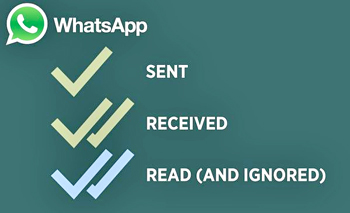 Nov 18: Last week, WhatsApp introduced a feature which allowed users to view whether their messages were read or not with the help of two blue ticks.
Nov 18: Last week, WhatsApp introduced a feature which allowed users to view whether their messages were read or not with the help of two blue ticks.
Some people found it interesting while the rest, were freaking out. A single tick indicted that the message was sent; two ticks indicated that it was delivered and two blue ticks proved that your massage has been read by the opposite recipient. It seemed for a while that this move might have been a bad decision compelling users to forcefully reply to messages and there was no escape.
Given the outcry, WhatsApp is now making some changes. The mobile messaging service quietly introduced a new feature which allows you to disable the blue ticks "read receipts". Remember that once disabled, users cannot check if others have read their messages either. This feature is again, only available for Android users. The new 2.11.444 WhatsApp version is available for download on their website.
Follow the simple steps to download the latest APK file from WhatsApp. (Make sure your smartphone is running on Android 2.1 or higher version.)
1. Your first step will be to go Settings and enable "Download from Unknown Sources".
2. Later, go to WhatsApp"s website and download the APK file.
3. Once downloaded, Install the app to your phone.
4. Once installed, open WhatsApp and head to "Settings".
5. Go to Account and click on Privacy.
6. You will have the option, "Read Receipts". Click on it and it will disable the blue ticks in your messages.
This update is not yet available on Google Play Store. The update is not available for iOS and Windows yet.





Comments
Add new comment